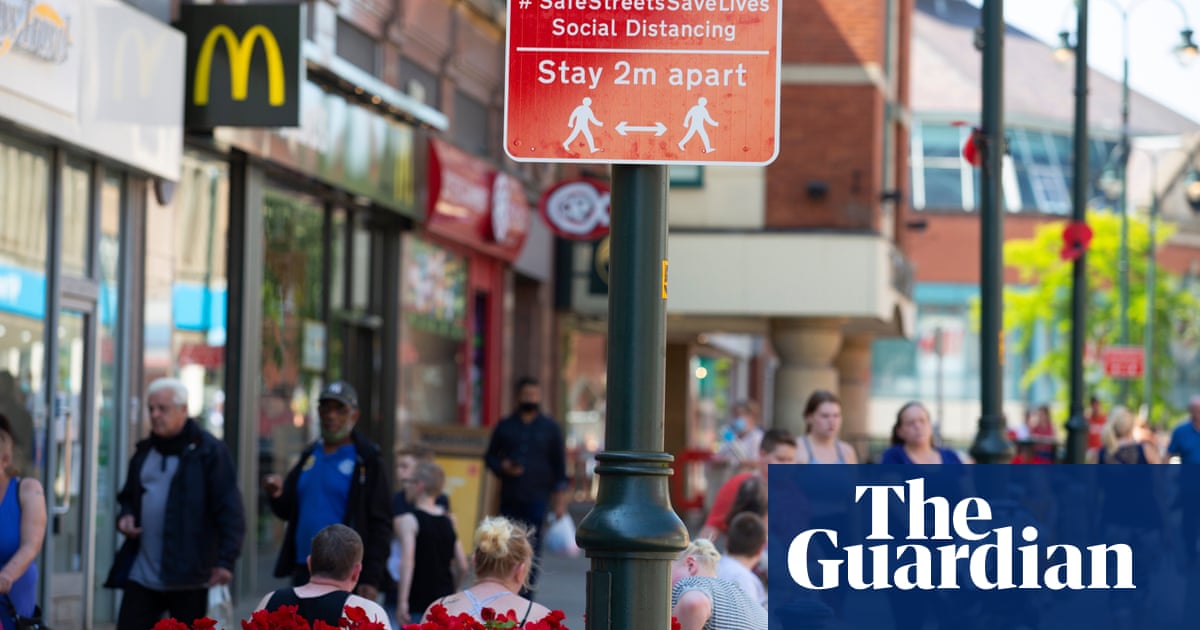
t the height of the first wave of the pandemic, I devised what I regarded as a cunning plan. Should I develop severe Covid-19 symptoms requiring hospitalisation, I would not reveal my true age, 68, to the NHS helpline or to paramedics, nor the fact I had an auto-immune condition and a low white blood cell count. Instead, I would pretend to be 55, with no other illnesses.
All my friends thought this was a ridiculous and immoral idea. Of course, I would never have gone through with this plan. But I suspect that I’m not the only older person who has feared being denied life-saving treatment for coronavirus. One friend, a woman of my exact age who developed several severe Covid symptoms, was denied admission to our local hospital by paramedics, despite passing out twice at home. Only when her daughter found her unconscious on the floor was she finally admitted.
During the beginning of the pandemic we were often told that the priority was protecting elderly people from infection. This was the reason even young and healthy people wore masks and followed lockdown rules. Policies aimed at preventing the virus from spreading were a collective commitment to protecting the vulnerable in our society.
Yet a different story seemed to be unfolding in the health service. As the pandemic wore on, people spoke of elderly Covid patients who were sent home to die as there was “no clinical benefit” to treating them in hospital. Some older patients were discharged to care homes, which subsequently became hotspots for the virus, without Covid-19 tests, and some people were denied acute care because they were deemed too frail. As a recent Sunday Times investigation reported, some older patients were denied life-saving treatment for coronavirus because they “ticked too many boxes” under the triaging guidelines allegedly used in some hospitals.
According to the investigation, some hospitals in regions such as London, Manchester and Liverpool, placed in the impossible position of needing to keep patient numbers down, allegedly applied an age-based scoring system to decide whether or not patients should receive life-saving treatment. And at the height of the pandemic, the percentage of coronavirus patients aged 60 and above receiving intensive care plunged by almost half.
The Department of Health says this guidance was never implemented – and that claims of patients being prevented from receiving necessary care are “false”. But another of my friends, a consultant at a major London hospital, has told me that some people in their mid- to late 60s who had other medical conditions were “de-prioritised” for intensive care in her hospital. She said that it was quite possible that a patient like me might indeed have been denied intensive care.
There’s nothing new about this picture. In recent years, reports have exposed the raw deal that older patients receive in our health service. As one 2012 study from Age UK and the Royal College of Surgeons put it: “Whilst a patient’s health needs – including conditions that could be treated by surgery – increase with age, planned (elective) surgery rates decline steadily for people as they grow older.” This gap between people’s increasing health needs and their access to surgery means “many older people are missing out on potentially life-saving treatment”.
Another report from the Royal College of Surgeons and Age UK in 2014 found that age discrimination in the NHS may be preventing older people from accessing life-saving surgery. The report, which analysed surgery rates across England’s 211 clinical commissioning groups (CCGs) for six procedures that are known to be effective in older people, found that a number of CCGs had very few people in the over-75 age group who received surgery for procedures including breast excision, gallstones, hernia repair, colorectal incision and knee replacements.
It’s been older people too who have been most affected by the decision to postpone non-urgent operations and treatments during the pandemic. Data from the Office for National Statistics shows that 31% of people over 70 say that their access to healthcare and treatment for non-coronavirus related issues is being affected.
They have been particularly hard hit by the reduction in face-to-face GP appointments. I’m vice-chair of the national charity for people with polymyalgia rheumatica and giant cell arteritis, PMRGCAuk, and a number of our older members say they just can’t get an appointment with their GP or their consultant. One member recently told us that they hadn’t been able to get an appointment with their hospital consultant for a year.
Other charities are also worried. Breast Cancer Now is concerned that screening self-referrals for women over the age of 70 have been put on hold while the NHS catches up with a huge backlog of women still waiting for mammogram appointments. A quarter of breast cancer cases are diagnosed in women aged 75 and over; in this age group, the rate of breast cancer detections is over three times higher than in women aged 45-49 after screening. Stopping self-referral appointments isn’t just distressing for older women – it’s potentially dangerous.
So little was known about Covid-19 in the first wave that it’s easy to understand why the health service, overwhelmed by the number of coronavirus cases, was faced with difficult decisions about whose care to prioritise. As Caroline Abrahams, director of Age UK, told me, “What’s really important is that we see much better practice everywhere, in the second wave.”
But it’s also vital, if hard choices have to be made, that the public is informed of the basis for these decisions, and whose care will be prioritised. We old folk noted Donald Trump’s recovery. Aged 74, clinically obese, allegedly demented: what treatment could he have expected from the NHS?
• Dorothy Byrne is editor-at-large at Channel 4












